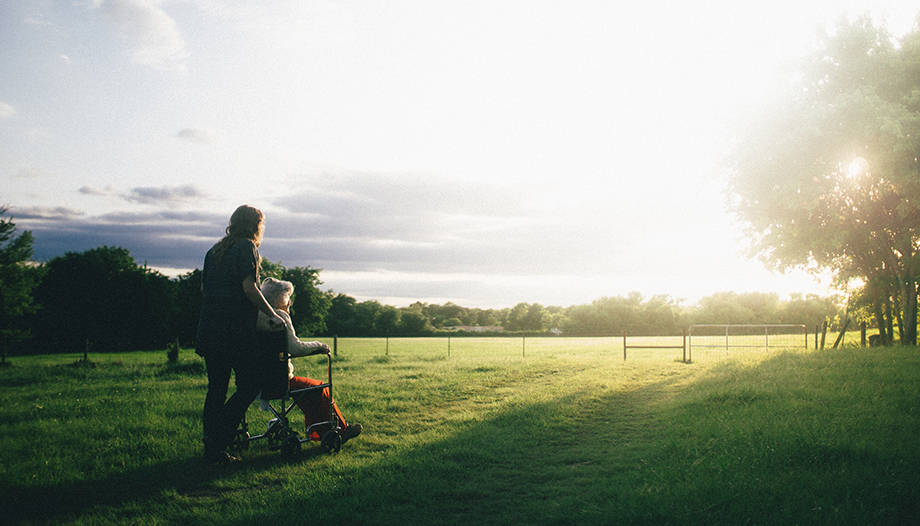If you take your priesthood seriously, you are usually "on duty" all day long. Serving has its risks. Just as a mountaineer or a sailor, by assuming what he is going to do, takes on the risks and takes the necessary measures to face them and achieve his goal, you, by opting for the priesthood, assume the risks and it is necessary that you also develop some care.
In class, sometimes, half jokingly and very seriously, I discuss with the students whether the medical profession is a profession of service. In the end we conclude that it is. I leave a pedagogical silence and ask: "Excuse me, can you tell me where the services are?". They laugh and look thoughtful in equal parts. Serving others has a risk and, if you take it, you need to take action.
The first risk is that you will be used. It sounds strong and it is. The good thing? It confirms that you are in your place, down the hall to the right. When I lived in Cordoba, a very old Jesuit priest died. A classmate of mine said to me: "The priest of St. Hippolyte, the one in the confessional entering on the left, has died". I asked him what his name was, but he did not know; and he usually went to confession with him. Many knew him that way: the one entering on the left. There he was, without a name, to use and serve. If you feel used: be happy, that's why you came, Manolete, to fight, and with a sense of humor.
Another risk: it is tiring. It is normal for human beings to get tired and to arrive at the end of the day exhausted. According to the Gospel, this also happened to Jesus, and he went around falling asleep on his head in the middle of storms. This is exactly why you need to rest. Sometimes, when a patient writes me an email saying that he is very tired, what can he do, I reply, "Have you tried resting, see what happens?". If he has a sense of humor, he rests, and if not, he looks for another doctor. Jesus used to go to Bethany on weekends, he sought his moments of solitude. How do you take care of and respect that weekly day of rest? Do you get enough sleep? Do you eat well and in order? Do you do some physical exercise? Do you cultivate -even if only a little- some hobby? Do you keep spaces free of screens?
Serving others also requires time, a lot of time. Whether to prepare, whether to listen, whether to collect..... You know this well. If you take this risk, you will force yourself, as a consequence, to distribute your time with quality and priorities, so as not to neglect those tasks that are essential to you. In a continuous formation on the life of prayer with professionals highly occupied in the business world, as well as parents of large families, they laughed a lot because I repeated to them in all the sessions and with theatrical fuss: "I don't believe that you want to dedicate some time to prayer - I don't believe that you want to dedicate some time to prayer.time of praying- if you do not have a slot reserved in your Google Calendar, because then you get a call conference and everything goes to hell".
It has been more than scientifically proven that professionals who work with people are at a higher risk of suffering from burnoutoccupational burnout syndrome, "as a result of chronic workplace stress that has not been successfully managed. It is characterized by three dimensions: 1) feelings of lack of energy or exhaustion; 2) increased mental distance from work, or negative or cynical feelings about work; and 3) a sense of ineffectiveness and lack of accomplishment. It refers specifically to phenomena in the work context and should not be applied to describe experiences in other areas of life." (World Health Organization).
Your work with so many people challenges you, you get into it, you give yourself to it; it is a job maintained over time and, if you don't take care of yourself, you wear yourself out. You need to successfully manage stress. In addition to the above, it can help you to know yourself better; to know what stresses you most about your job - the famous cortisol that explains so well the Dr. Marian Rojas- and dose it (or delegate it, if you can); learn emotional regulation tools; ask for help if you don't get to the issues; have friends with whom to "vent emotionally" and who are not scared because you are a priest; lean on priest friends in particular and have vacation seasons. If you have the symptoms listed by the WHO, consult a doctor. Priests can also benefit from time off from work. Leave from work, not from being a priest.
It also has many benefits. We'll leave them for another issue, and in the meantime, enjoy being a priest and the good you do with pride: thank you!









